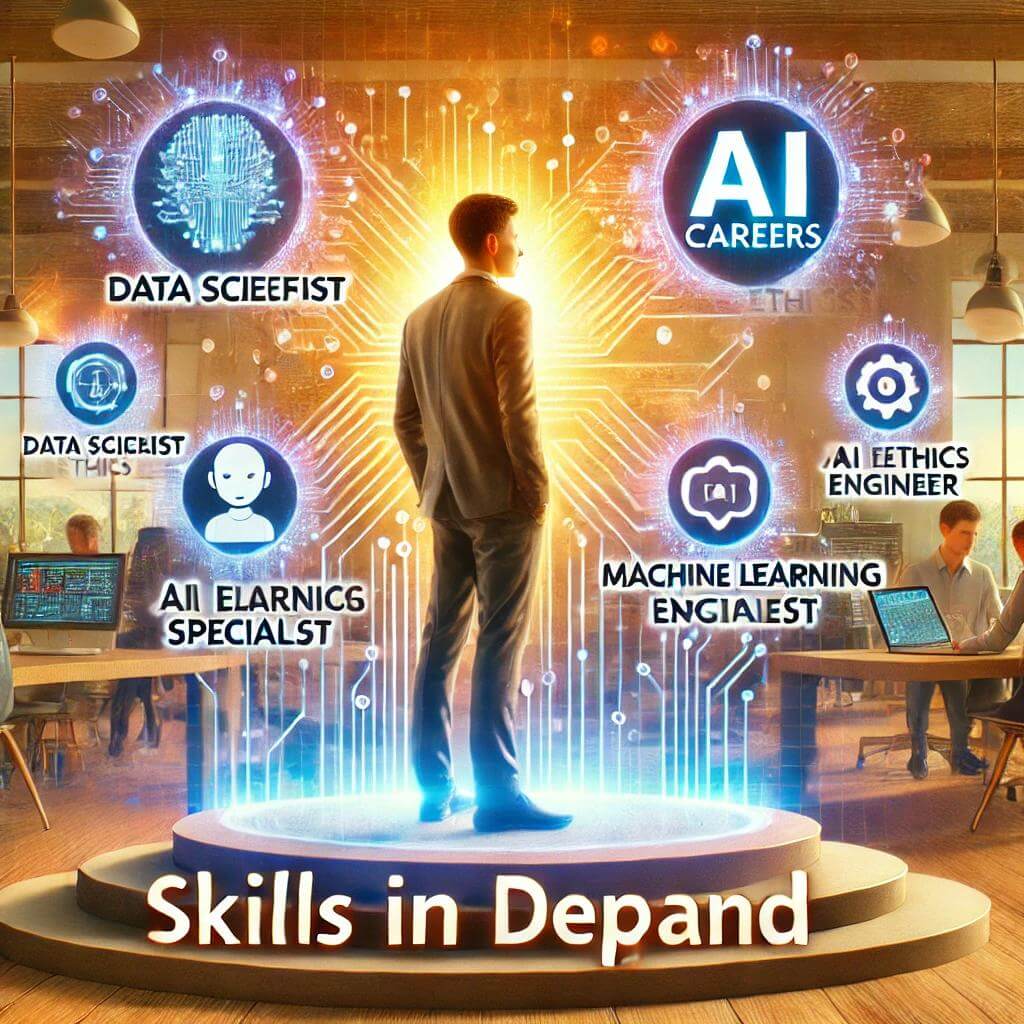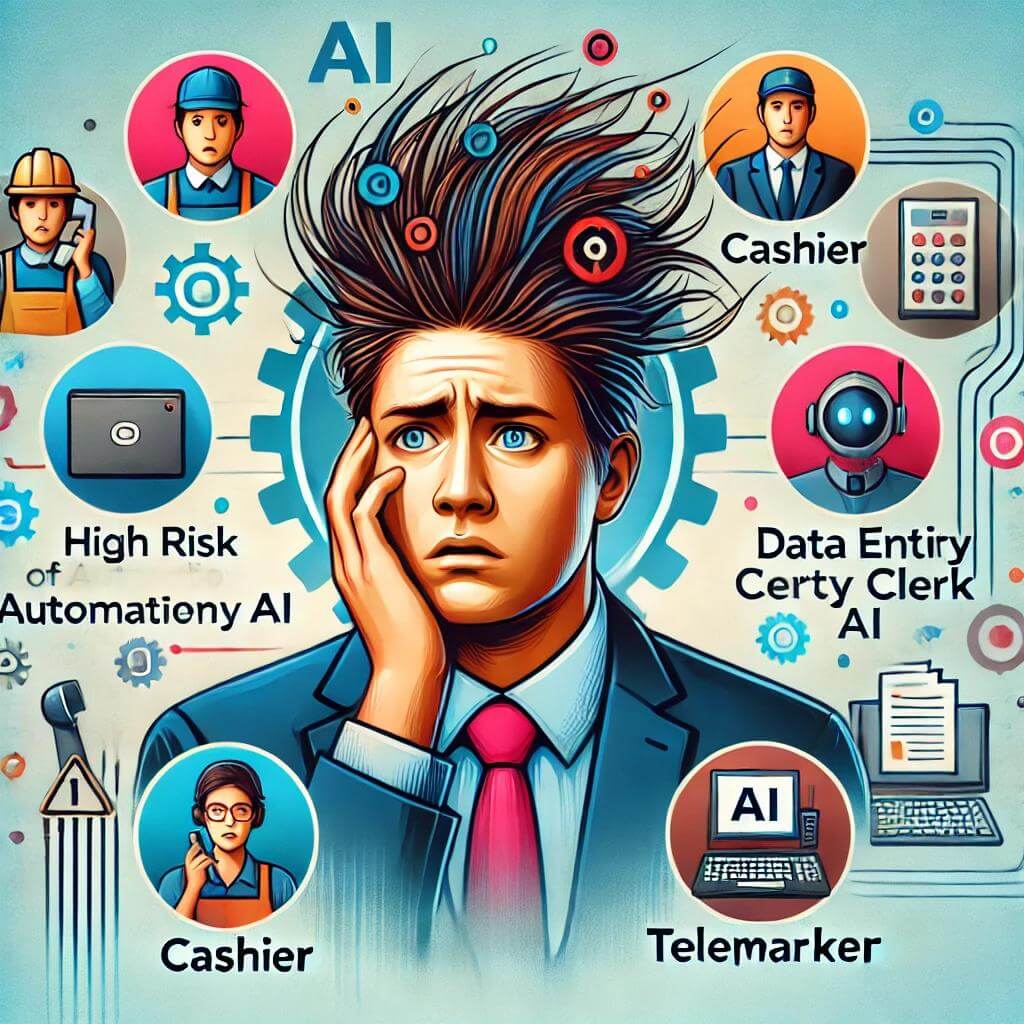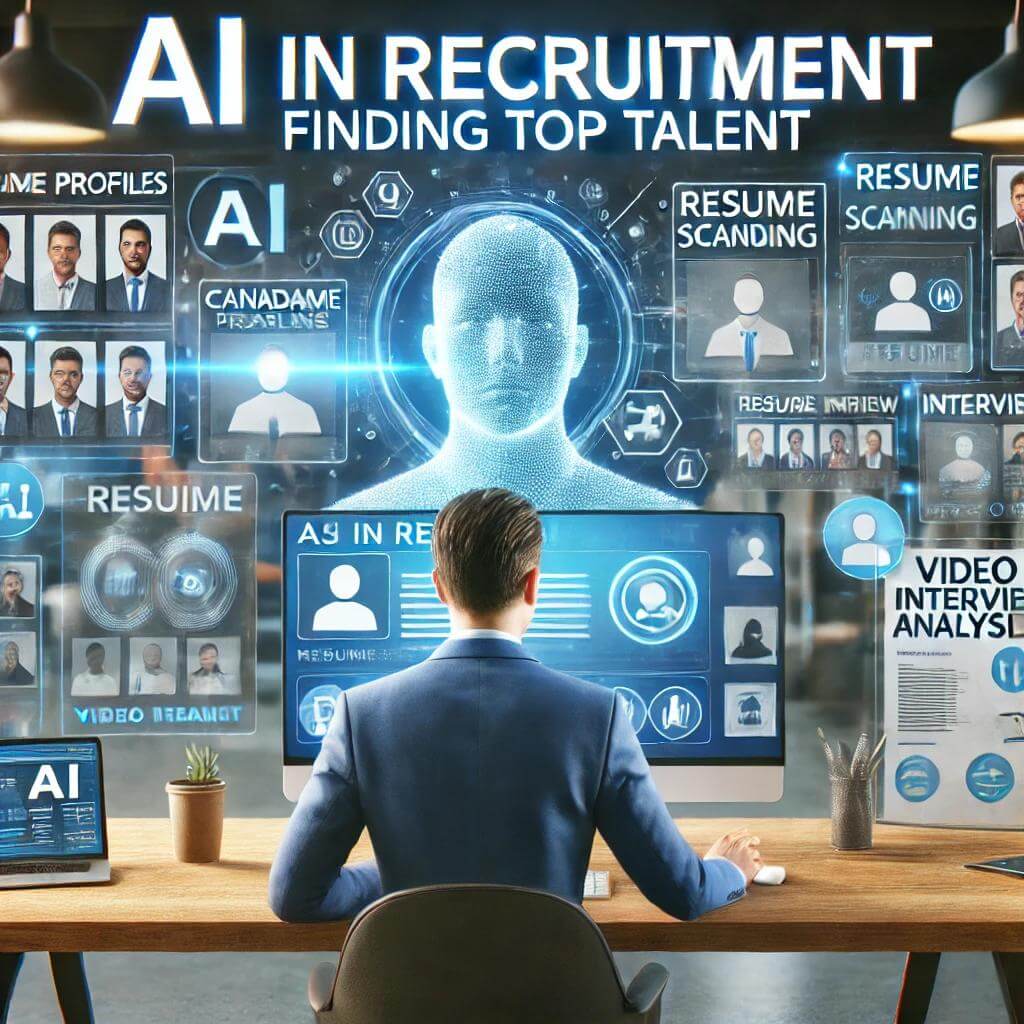How AI is Shaping the Future of Work
Artificial Intelligence (AI) has quickly become a transformative force across various industries, reshaping roles and redefining work as we know it. From automating routine tasks to aiding in complex decision-making, AI’s influence on the future of work is profound and far-reaching. As businesses integrate AI technologies, job roles are evolving, productivity is increasing, and new skills are becoming essential. This article dives into how AI is changing the workplace, the skills that will be in demand, and how industries such as healthcare, finance, and customer service are utilizing AI to redefine roles and enhance productivity.
The Evolving Nature of Jobs in the Age of AI
AI’s integration into business processes has led to significant changes in traditional job roles. As AI takes on repetitive, data-intensive tasks, employees are free to focus on higher-level, creative work that requires human insight and decision-making. While some jobs are being automated, AI is enhancing others, leading to a shift in the type of work people do.
Roles Impacted and Enhanced by AI
The rise of AI is reshaping a variety of job roles:
- Data Analysts and Scientists: With AI processing vast amounts of data, data analysts and scientists are now focusing on interpreting insights and guiding business strategy.
- Customer Service Representatives: AI-powered chatbots handle initial customer interactions, allowing human representatives to manage complex or personalized inquiries.
- Human Resources: AI assists in recruitment by screening resumes and even conducting initial assessments, so HR can focus on culture building and employee engagement.
Emerging Fields and Skill Sets
As AI transforms industries, it is also creating demand for new skill sets and job roles. Employees who can work alongside AI and leverage its capabilities are becoming highly valuable. As automation handles operational tasks, human skills such as critical thinking, creativity, and emotional intelligence are increasingly important.
In-Demand Skills for the AI Era
These skills are now crucial in an AI-driven world:
- Digital Literacy and Technical Acumen: As workplaces become more tech-centric, understanding how to use and interpret AI tools is essential.
- Critical Thinking and Problem-Solving: AI is adept at data processing but lacks human intuition, making critical thinking a valuable asset.
- Emotional Intelligence and Interpersonal Skills: Roles involving empathy, negotiation, and personal engagement are less likely to be replaced by AI and will remain valuable.
New Job Roles Arising in the AI Landscape
| Job Role | Description |
|---|---|
| AI Ethics Specialist | Ensures that AI systems are ethical and comply with standards |
| Data Curator | Manages data quality for AI systems |
| Machine Learning Trainer | Prepares and refines AI models for specific tasks |
The Impact of AI on Productivity
AI technology has a tremendous impact on productivity across industries. By automating repetitive tasks, AI allows employees to focus on strategic activities that drive growth. Furthermore, AI’s ability to process information and provide insights in real-time is helping companies make faster, data-driven decisions.
Boosting Productivity with AI Tools
AI is enhancing productivity in the workplace through several key functions:
- Automating Routine Tasks: Tasks such as scheduling, data entry, and document processing can be managed by AI, allowing employees to focus on more value-added activities.
- Supporting Real-Time Decision-Making: AI processes large volumes of data in real time, enabling faster response to changing market or operational conditions.
- Reducing Errors: AI’s precision in tasks such as data entry minimizes human error, ensuring a higher level of accuracy across processes.
By automating routine tasks and aiding in decision-making, AI is not only boosting productivity but also fostering a more engaged and efficient workforce.
Real-Life Applications of AI in Various Industries
AI is reshaping industries in significant ways, allowing companies to innovate and streamline their operations. Below are examples of how different sectors are utilizing AI to change job roles, increase efficiency, and meet the demands of a modern workforce.
AI in Healthcare
In healthcare, AI is transforming the way medical professionals diagnose, treat, and manage patient care. Through advanced machine learning algorithms and predictive analytics, AI assists in everything from diagnosing diseases to planning treatments.
- Medical Imaging and Diagnostics: AI-powered systems analyze medical images, identifying patterns that could indicate diseases like cancer, often with higher accuracy than human analysis.
- Personalized Medicine: AI analyzes patient data to create personalized treatment plans based on genetic, lifestyle, and medical history.
- Patient Monitoring: Wearable devices powered by AI monitor patient health in real-time, alerting healthcare providers of any abnormalities.
AI in Finance
AI plays a critical role in the finance sector by helping banks and financial institutions manage risks, detect fraud, and optimize investment strategies. Through AI, financial organizations can analyze market trends, forecast risks, and even automate routine processes like loan approvals.
- Fraud Detection: AI-powered systems monitor transactions for unusual activity, flagging potential fraud in real time.
- Algorithmic Trading: AI algorithms analyze large volumes of market data to predict stock movements, allowing traders to make informed decisions.
- Customer Service: Financial institutions use AI chatbots to assist customers with basic inquiries, streamlining the customer experience and reducing wait times.
AI in Customer Service
Customer service is another area where AI is significantly improving efficiency and user experience. Through tools like chatbots and virtual assistants, businesses can handle customer inquiries faster, provide accurate responses, and deliver a personalized experience.
- Automated Responses and FAQs: AI chatbots can handle routine inquiries, such as answering FAQs, allowing human agents to focus on more complex issues.
- Personalized Assistance: AI systems analyze customer data to provide tailored responses and recommendations, enhancing customer satisfaction.
- Predictive Customer Support: AI identifies patterns in customer behavior to predict potential issues, allowing businesses to proactively address them.
Challenges and Considerations for AI in the Workplace
Despite the many benefits AI brings to the workplace, its integration also poses challenges that need to be addressed for successful implementation.
Ethical and Privacy Concerns
As AI systems rely on large amounts of data, they raise questions around data privacy and security. Businesses must ensure compliance with data protection regulations and maintain transparency with customers about data use.
Skills Gap and Workforce Adaptation
The shift towards AI-driven workplaces has created a skills gap, with many employees lacking the technical expertise required to work with advanced AI systems. To bridge this gap, organizations are investing in upskilling and reskilling programs to help employees adapt to new technologies.
Balancing AI with Human Expertise
While AI excels in tasks requiring data processing and analysis, it lacks the creativity, intuition, and interpersonal skills of humans. Organizations need to find a balance between automation and human judgment to avoid an over-reliance on technology.
Conclusion
AI is shaping the future of work in profound ways by transforming job roles, enhancing productivity, and revolutionizing industries. As businesses continue to adopt AI technologies, the demand for digital skills and human expertise is growing. By understanding and embracing the impact of AI, companies can unlock new opportunities, make smarter decisions, and build a more adaptable and innovative workforce for the future.




Post Comment